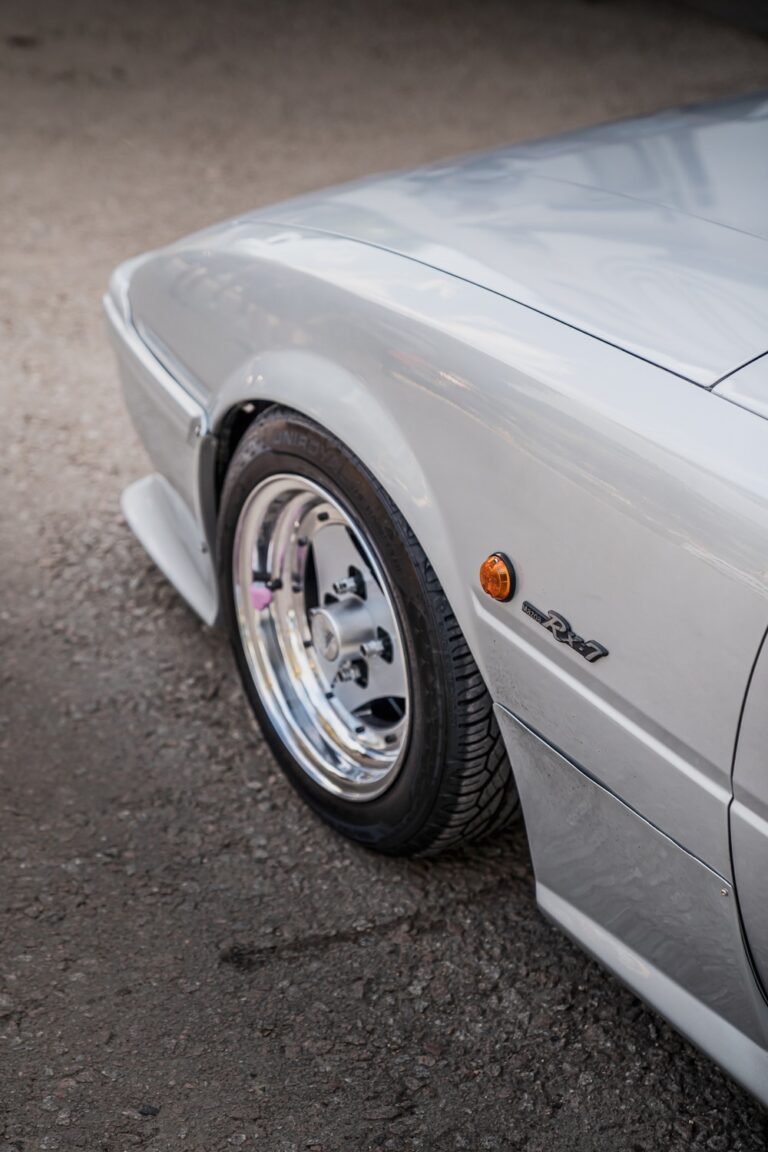Think of the Mazda RX-7, and, likelihood is, you think of the FD generation. The compact, curvaceous coupé, produced between 1992 and 2002, became a hero car of the era through all the usual JDM cultural touchpoints of its generation. Oh, and because of that vaunted rotary engine.
With that legendary status has come the sudden but inevitable spike in values for that final generation of car. That, together with the seemingly unstoppable cultural rise of all things 1980s, means that we’re seeing something of a repositioning of its two forebears – particularly the first-generation car.
Launched in 1978 and somewhat clunkily known as the SA22C before a facelift saw it take on the FB moniker, all the RX-7 hallmarks are there: the classical sports car proportions, the pop-up headlights, and of course, the free-revving, twin-rotor Wankel engine.
An RX-7 wouldn’t be an RX-7 without some choice modifications, either, and Amber’s FB is a fine demonstration of the powers of restraint, personalisation and patience in hunting down the best and most authentic parts.
Coilovers all round bestow the car its ground-hugging stance, dropping it low over a set of chunky three-spoke, three-piece Advan wheels. Bodywork-wise, the front bumper and rear wing come from Elford, whilst the rear bumper is a Kuwe piece, creating a cohesiveness that strongly illustrates the power of mixing and matching different brands.
To uncork the characteristic rotary rasp, Amber commissioned a full custom exhaust system, the tips of which may be the first instance you notice of the heart motif that runs throughout the car, from the steering wheel to the valve dust caps.
As a whole, Amber’s RX-7 carries a visual style that both condenses the era the car hails from and is a canvas on which the owner’s personality can be writ large. It’s a perfect encapsulation of the spirit of individuality that helps define Daikoku Nights.












